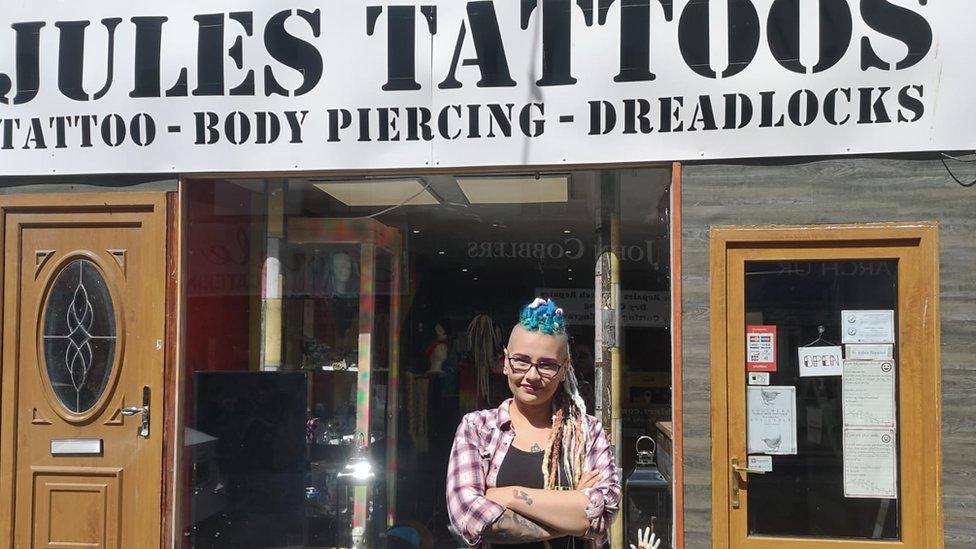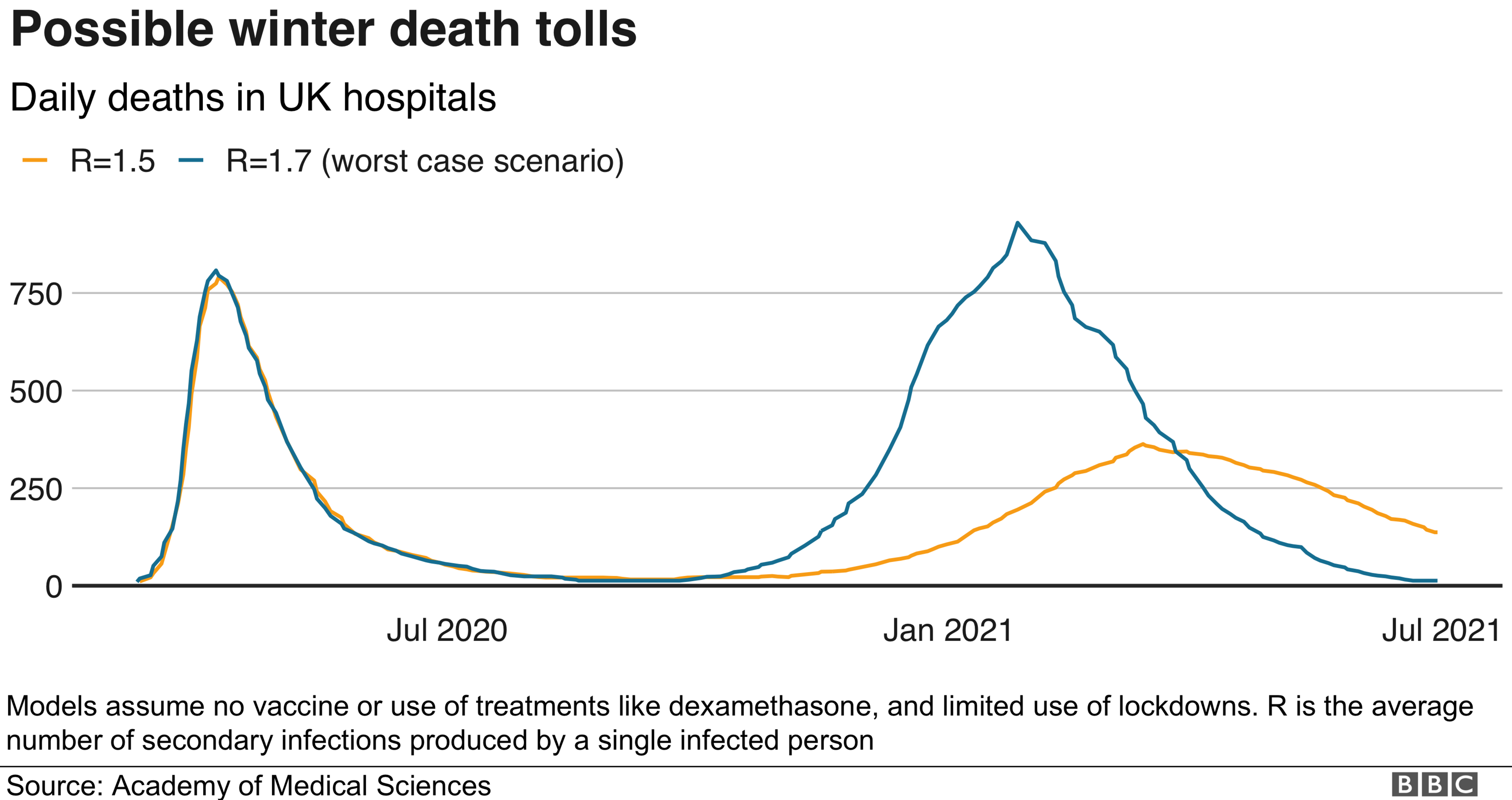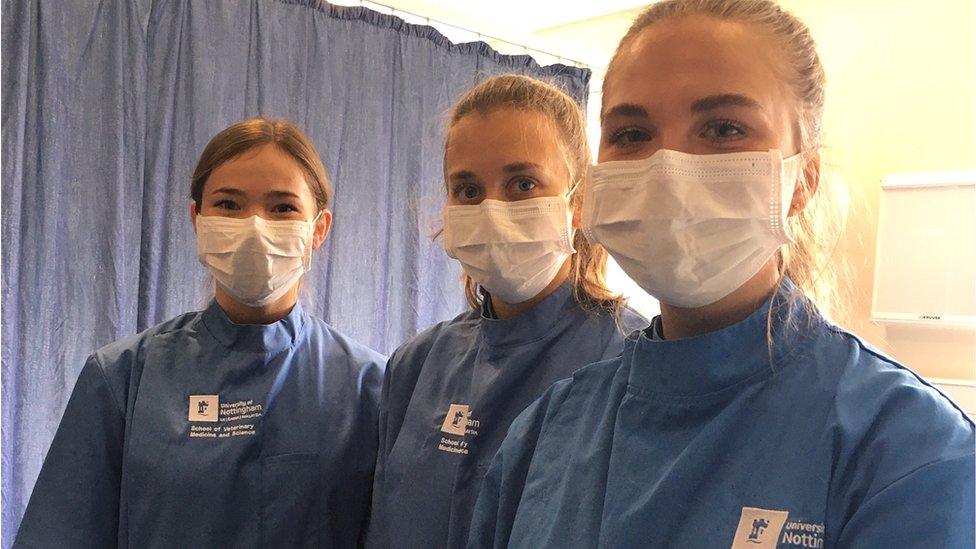Coronavirus: Obesity strategy, Spain quarantine and Wales lockdown easing
- Published
Here are five things you need to know about the coronavirus outbreak this Monday morning. We'll have another update for you at 18:00 BST.
1. Obesity strategy
It's not a new problem, but coronavirus has put fresh impetus behind the need to tackle the nation's obesity crisis. Figures show being overweight puts you at significantly greater risk of falling seriously ill. That's why the government is unveiling a wide-ranging strategy - specifically for England, but with some UK-wide measures - to help people shed the pounds. A ban on "buy one, get one free" deals on unhealthy food, restrictions on advertising, and calorie counts on restaurant menus - our story has all the details.
The people tackling obesity during lockdown

2. Spain quarantine
The government has defended its decision to impose a 14-day quarantine on people arriving in the UK from Spain, with Health Minister Helen Whately insisting it had to act "rapidly and decisively". However, Labour is calling for financial support for those affected - warning there's no guarantee employers will allow them to work from home. The party also wants help for the aviation industry, hit so hard by the pandemic. We've heard from many holidaymakers upset at the sudden change in policy regarding Spain, and here we outline your rights if you had a trip booked.
Raab: Quarantining workers "ought to be treated sympathetically"

3. Tattoos and treatments
A significant easing of lockdown restrictions has come into force in Wales, with cinemas, museums, beauty salons and tattooists allowed to reopen. The housing market has also fully restarted, and driving lessons can resume. The Welsh government has resisted calls to make face coverings mandatory, but they are now required on public transport - although not in shops. Read the new rules in detail.

"Tattooists are one of the cleanest places you can be," says Jules Lee

4. How bad will winter be?
It might only be July, but winter is coming and there are fears that coronavirus will surge when the seasons change. However, predicting what a Covid winter will look like is complex and uncertainty reigns. Our health correspondent James Gallagher says there are reasons both to be worried and to be reassured.


5. Students return
University campuses were shut down when the pandemic hit, but the first students are beginning to return for face-to-face teaching. Veterinary students at the University of Nottingham are the pioneers for how things will look across the UK in the autumn. Bars are closed and masks are commonplace, but the university is working hard to find the positives and the students say they're just delighted to be back with friends after months cooped up at home.

The trainee vets say they're relieved to be back after the long lockdown

And don't forget...
You can find more information, advice and guides on our coronavirus page and get all the latest in our live page.
Plus, flu vaccines will be more important than ever this year, and of course, the hope is that a vaccine for coronavirus itself will be developed eventually. But how do you persuade anti-vaxxers to get a jab?


What questions do you have about coronavirus?
In some cases, your question will be published, displaying your name, age and location as you provide it, unless you state otherwise. Your contact details will never be published. Please ensure you have read our terms & conditions and privacy policy.
Use this form to ask your question:
If you are reading this page and can't see the form you will need to visit the mobile version of the BBC website to submit your question or send them via email to YourQuestions@bbc.co.uk, external. Please include your name, age and location with any question you send in.